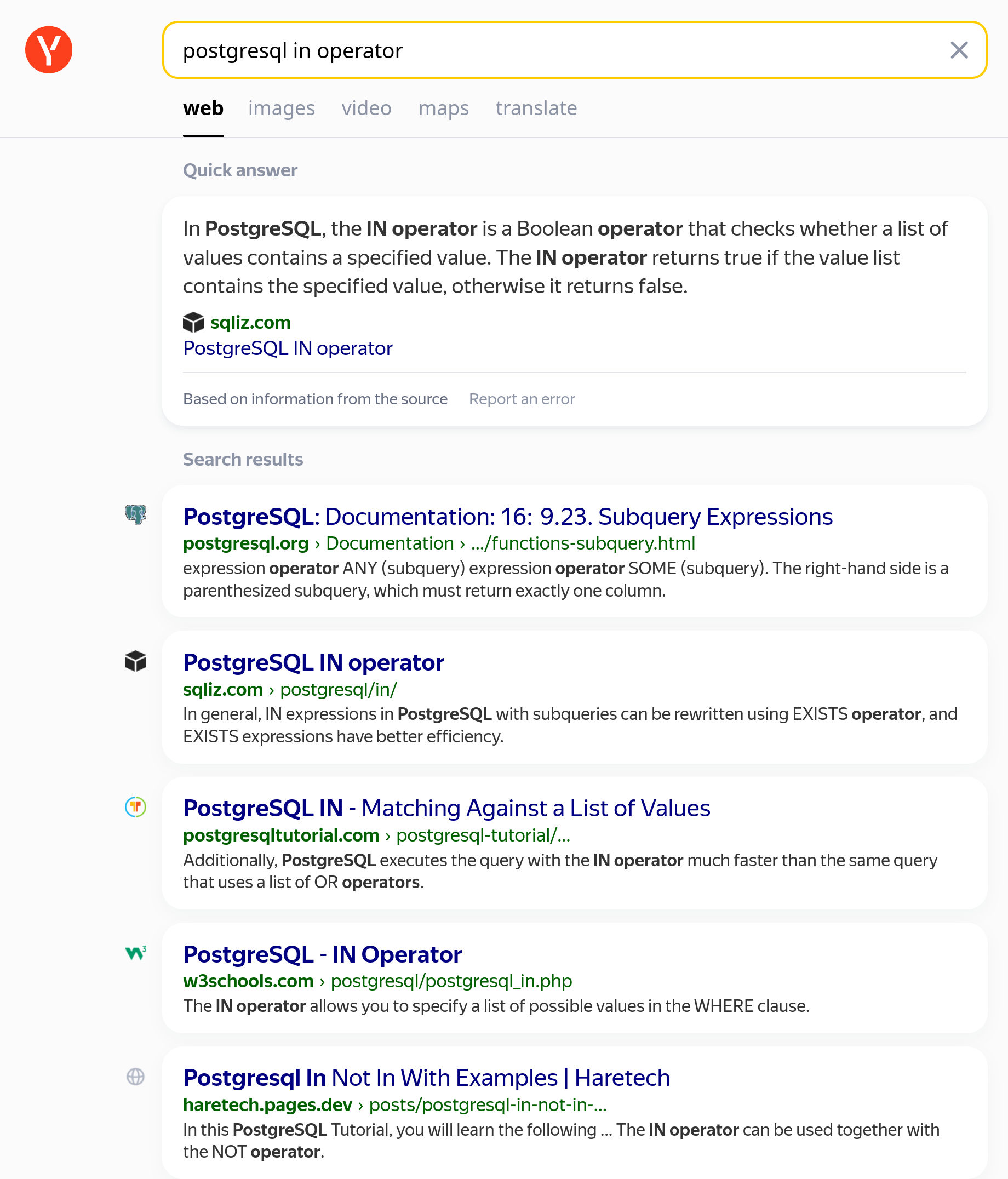Yeah it sucks that Node is on a 2 year old version. I ended up just using a Docker container for that stuff. Weird that Guix has some packages years out of date while others are always bleeding edge.
In Molkino по-любому we trust.
- 0 Posts
- 6 Comments
Yooo rare fellow Guix user. After a while Guix motivated me to learn Scheme. IMO easiest way is to just read the first chapter of SICP, its only about 60 pages.

 1·6 months ago
1·6 months agoYandex:

First result with a more up to date version. No AI, only quotes from the source. Still shows a bunch of SEO.

 2·7 months ago
2·7 months agoBack when I had to use a windows vm just did
qemu ... -net user,smb=$HOME/then in the windows vm just type
\\10.0.2.4into file explorer. Does that not work?man qemusays:smb=dir[,smbserver=addr] When using the user mode network stack, activate a built-in SMB server so that Windows OSes can access to the host files in dir transparently. The IP address of the SMB server can be set to addr. By default the 4th IP in the guest network is used, i.e. x.x.x.4. In the guest Windows OS, the line: 10.0.2.4 smbserver must be added in the file C:\WINDOWS\LMHOSTS (for windows 9x/Me) or C:\WINNT\SYSTEM32\DRIVERS\ETC\LMHOSTS (Windows NT/2000). Then dir can be accessed in \\smbserver\qemu. Note that a SAMBA server must be installed on the host OS.Another way is to setup Spice and use a webdav daemon in Windows to transfer files over Spice folder sharing.
You could also just RDP to the machine which is probably the easiest.
The simplest would just be to
scpfiles to and from Windows. Like in powershell doscp -R yourusername@10.0.2.2:~/path/stuff output_dirto get files from Linux.

 2·8 months ago
2·8 months agoBeen using Yandex as my default search for almost a year now. It’s like the old Google and DDG. It doesn’t have as many SEO sites like Google results and actually respects when you put quotes around to force include a word in the query making it much more useful for searching up programming errors. The only downside I found is that it has a bunch of anti-degeneracy filters which sometimes interfere if for example if you search up something like “unixporn” it will try and block the word “porn” in the results. Also translate.yandex.com is really good at translating Russian, but seems slightly worse than Google translate for Chinese.
Doesn’t that construction only work in categories that also contain their own morphisms as objects since a profunctor maps
(Cᵒᵖ × C) → Setand not the same like(Cᵒᵖ × C) → C? Since the category of Haskell types special, containing its own morphisms, so the profunctor could be like(haskᵒᵖ × hask) -> hask? or I just don’t understand it.